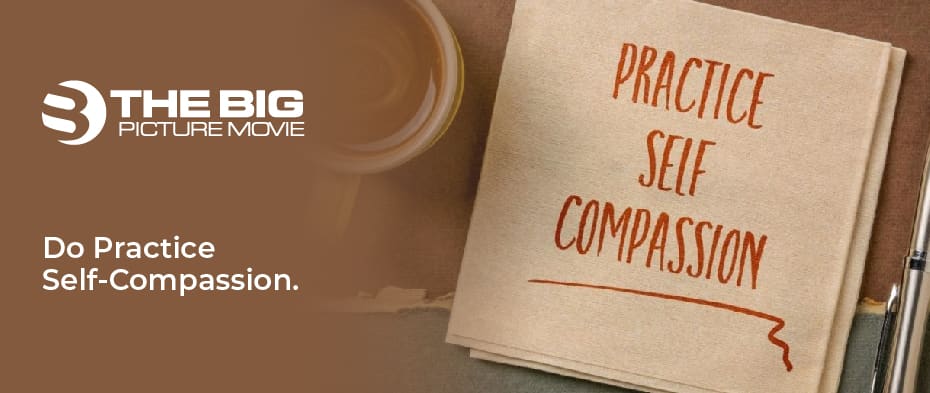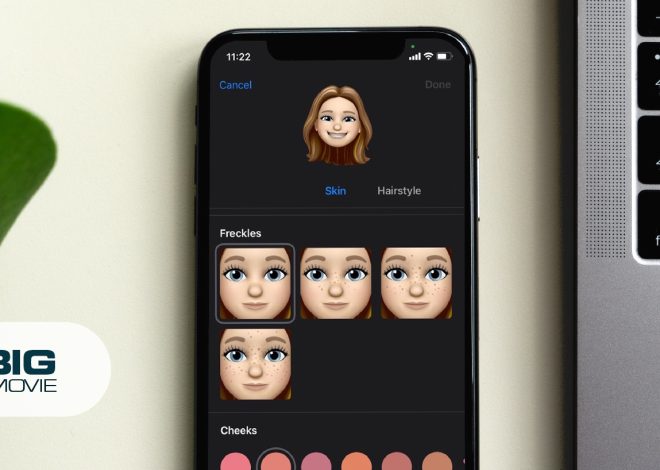
How to Focus On Yourself (10 Best Tips)
How to focus on yourself? There is no need to be concerned, even if it appears difficult in this hectic schedule. Here you will learn some valuable tips to make yourself a top priority avoid stress, and chase your dreams.
However, prioritizing yourself is not selfish. But it is an act of self-love. However, focusing on others only and not on yourself will be complicated to make growth in life. Nevertheless, doing things for others rather than ourselves is easy. But it can burn out and imply that you are not good to anyone.
All these tips improve your relationship with yourself, and you might feel free of anxiety, stress, and depression. Maintaining balance or developing positive habits is hard, but it is not impossible. Hence, putting yourself first is the key to doing better for others in more meaningful ways. So let’s move to the next section to see the tips in detail.
10 Top Ways to Start Focusing on Healthy Habits

As you know, self-relation skills are at their best when you are alone. It is a life-long process that allows you to accept and be compassionate toward yourself, feel competent to achieve your goals, and experience life’s joys and disappointments.
However, as you get older, it develops more complex relationships, and things begin to blur. Here are the ways to learn to prioritize yourself and fulfill all your needs as an individual on cloudy days :
1. Focus on Yourself by Making a Self-Care Plan
In its most actual sense, focusing on yourself means a self-care practice that meets your needs. It permits you to turn your attention toward yourself in a fundamental way. Each person has specific basic needs that play an essential role in overall well-being, including sleep, nutrition, relaxation, and physical exercise.
Hence, by neglecting these basic needs, you are probably not getting enough time to come out of life’s various sources of stress. Thus, you might not observe any impact initially, but after some time, you might see some unwanted changes in your physical and mental health.
Let’s see how you can do that:
- Schedule your time for physical activity.
- Include some mood-boosting foods in your diet plan.
- Try meditation.
- Note your mood in a journal.
- Reading a book.
- Plan to spend 2 hours in nature each week.
You don’t need to do all these activities in a single day. It is better to act wisely, choose one thing to do, and gradually work your way toward other practices that make you feel good.
2. Focus by Taking a Round to the Outside
Some of the mutually dependent qualities you have built up by spending so much time in a particular place, environment, or other person’s place irritate you.
As it is not possible that everyone is an outdoorsy type, spending a little time with nature will lower your stress and contribute to emotional well-being. So does an experiment, spend 15 minutes outside, and see if your mood improves and you can gain a new perspective while getting some fresh air.
3. Do Practice Self-Compassion.

Care for others is a positive quality that should not be overlooked. Offering emotional support or focusing on our loved ones when they struggle shows your concern and strengthens your relationship.
Benevolent or prosocial behaviors like practicing kindness and giving benefits to others can boost feelings of happiness and help improve well-being. But don’t forget to treat yourself with the same affection and kindness you apply to others.
Maybe you are always ready when your friend needs your kind word, a hug, or a pleasant distraction, but what about you when you may also need these things? Similarly, many others may have high expectations of themselves and develop a habit of speaking negatively to themselves. So it is better to love yourself as well as others.
4. Focus To Love Yourself!
Here are a few easy keys to use in self-compassion:
- Instead of forcing yourself to keep trying harder to complete an assignment, take a break and take your time to recharge yourself.
- Encourage yourself with a gentle reminder that you did your best and can do better next time, rather than criticize yourself for failure.
- Hug yourself.
- Make out when you need a break.
- The last key is maintaining the right balance between focusing on yourself and others.
Dedicating your energy to other people leaves you with little for yourself. Another critical point is that when you fulfill your needs first, you will be in a much better position to support your loved ones.
5. Do the Things You Enjoy.
Spending plenty of time with their partners might work for a while, but not continuously. Sometimes things will go off course, and you will lose touch with those interests over time. Then, it results in frustration, hatred, and discouragement. So, think about what you like to do and bring joy to your life when you don’t have to consider anyone’s preferences.
However, everyone needs time to practice their own hobbies, and it’s relatively rare that two people do the same thing all the time. Even when you are very close, spend some time on your own to focus on yourself and with other close ones, though it may improve the health of your relationship.
Likewise, after the relationship ends, you may need to learn how to enjoy your own company. This way looks complex at first but tries to make this solitude a chance to discover new hobbies or relive old ones, from stargazing to scrapbooking to tabletop gaming.
You may skip your hobbies first to face the immediate challenges of the like. But this can be a reverse process also. Lack of sleep might make it more problematic and difficult to face challenges. Thus, setting time for hobbies and relaxation can help you out on burnout days where your joys are distracted from your career or other challenges.
6. Get Familiar with Yourself.

Feeling unsure about your identity can make it tough to get clarity on your life goals. Making a strong self-relationship is the best way to return your focus to yourself. You can’t achieve your goals without knowing yourself, so live according to your values and meet your needs.
Some significant events can drive your growth and bring to light where you have already changed. Because your new personality appears, this insight may make you rethink your beliefs about who you were.
You might not immediately welcome this self-new knowledge aspect if it disagrees with your existing opinion of who you are. But failing to recognize your growth can leave you feeling deficient and displeased.
This ambiguity can affect your emotional well-being, sense of self-growth, and relationships with others. Approaching these changes in yourself with snooping can help you get used to them more easily.
Advice on Getting to Know You:
Instead of thinking of yourself as a fascinating person you want to be friends with, start a conversation with yourself (nevertheless, that’s ok also). But you can try some tips like; keeping a daily journal of your routine, conversations with friends, hobbies, emotions, personal frustrations, or anything that comes to mind. Enlist any experience you would like to have:
- Confront yourself to try something new each day.
- Determine Your Key Likes And Dislikes Using Your Lists.
- Recognize your strengths and areas where you would like to grow.
These exercises are beneficial to making your complete image of yourself as a person, outside anyone else’s influence.
7. Focus on What You Really Want.
Mostly, people care about the opinions of their loved ones. But don’t do everything your family or friends suggest; so carefully consider their guidance when making a decision.
Usually, it is helpful to get suggestions from others, especially when making big decisions. Still, it is essential to note the difference between the guidance and your preferred route. Sometimes it feels slightly blurred in the difference, and you may not even realize initially that your dreams are actually someone else’s dreams.
8. Scrutinize Your Values.
It is not uncommon to lose sight of your personal values, especially while you find yourself on a rough course or find yourself single after a long relationship. Then, take your time to refocus on yourself by focusing on your particular qualities, which helps you identify who you are and what you want to become. If you value the community, for example, you find a way to share time or assets with your society.
When you identify your values, you can start to explore ways to include them in your life in significant ways. Some of the values, like bravery, optimism, or adventurousness, might come naturally to you. Moreover, accountability, honesty, or leadership may require a little more work.
While living this way is worthwhile, according to the research, it is suggested that living according to your values helps improve satisfaction with life and mental health issues.
9. Focus on yourself by Dealing with your Fear.

After a pandemic, there is a legit reason to have several sources of anxiety, maybe because you are not as adventurous now as you were.
Avoiding new experiences out of fear can limit your inner self’s ability to make connections with yourself. You should talk with your friend or therapist about your anxiety and try new things. Talking to them will either increase your fear or provide perspective on the actual risks.
10. Ignore The Comparison Trap.
On occasion, the majority of people outnumber others. It shows you are slightly envious of your friend. Perhaps you might think you will feel happy if you have the same things as your friend.
Comparison is somewhat good for growth as it motivates you to want everything your friend has. But if it affects your values and etiquette, then it is considered a bad thing. As not all people have the same joys and blessings, every person has a different type of hard work in their life. That’s why their joys are also different. However, there is no guarantee that the same belongings will also bring you joy.
Thus, it can be problematic when it distracts you from your goals and priorities. You might end up working toward something that you don’t necessarily want. That’s why you might expect to resolve your dissatisfaction. So, instead of looking at others, focus on your things. Moreover, the things that make you happy and successful.
Wrapping Up
I hope so. Now you will get tips on improving your personality by focusing on yourself. Also, as how to survive in society and help others in crucial times without exerting yourself. Hence, share your thoughts about the blog and more tips by leaving a message in the comment box.



